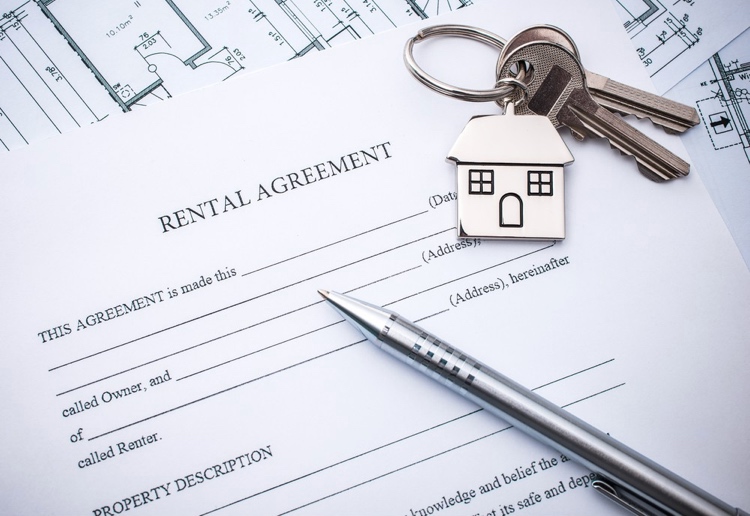Mortgage payments, end of lease flexibility and low maintenance and utility expenses are just some of the benefits of renting. In many cases, it’s a more cost-effective solution than owning your own home.
Renting can be easier. But rental properties still require maintenance and accountability to keep in good shape. Both the landlord and tenant have a responsibility to uphold. And when things go pear shape, such as emergency plumbing problems or missed rent payments, it’s important to know your rights and what’s expected from both parties.
Whether you’ve just left the family nest or finding a new rental property, here are some handy tips to benefit from (and keep your landlord happy).
1. Learn Basic Plumbing Repair
To avoid tenant negligence, basic understanding of drains and how to unblock them can help you out of a sticky situation.
Drains are easily blocked from everyday culprits such as hair, cooking grease and soap scum. However, learning how to fix a blocked drain yourself can save a lot of time and money.
Often clogged pipes or slow drains can be sorted without the need for a plumber. Even with a landlord, plumbing costs may fall on the tenant if proper maintenance hasn’t been performed, or as per the rental agreement.
Instead, learn basic plumbing repair and always keep a plunger handy. Depending on the culprit, some things can be removed with gloved hands or drain cleaner. Other plumbing issues, such as a clogged toilet, will require the water to be turned off before you use a plunger. Drains should also be treated monthly to minimise clogging problems. Use a mild enzyme-based drain cleaner.
2. Ace Your Rental Inspections
It doesn’t matter if you’ve rented multiple times or never, acing inspections can still be a challenge.
Some landlords aren’t fussy. Whilst other owners and many real estate agents use a strict rental inspection formula. To be safe, it’s important to make every rental inspection a priority by targeting overlooked parts of the home. Some of these include:
- Oven and stone tops: The best way to clean an oven is with a vinegar and baking soda mix, this includes removing burnt off grease too
- Walls and light switches: Some of the easiest spots to clean (warm water and a sponge), yet some of the dirtiest and most overlooked
- Bathroom tiles: A quick wipe down of bathroom tiles is rarely sufficient, remove mould and clean grout with a scrubbing brush, bleach and mould cleaner
- Toilet: Not just a new ‘blue loo’, give it a good scrub with disinfectant inside and outside
- Carpet stains: Get onto them early, before they become a potential bond-breaker at the end of your lease
Although regular rental inspections won’t be as critical as the end of lease inspection, they still require a thorough clean, attention to detail and necessary minor repairs to pass with flying colours.
3. Keep Good Records
Whether you’re renting on your own, with your spouse/kids or roommates, good records are critical if there’s ever a dispute. This includes correspondence about repairs, copies of bills, payments, tenancy agreements, property condition report and receipts.
Choosing to live with roommates can be a great way to save money and split costs. However, avoid being the sole account holder or name on a lease as this will hold you liable for all rent. If it is up to you to manage multiple rent payments, you can keep track of payments via online spreadsheets or smartphone apps.
To avoid any roommate disputes, put together a written agreement before they move in which is clear on how rent/utility bills are split.
4. Don’t Ignore the Property Condition Report
The Property Condition Report (PCR) is the bible of the rental world.
It outlines the current condition of the property at the start of a new tenancy. Signing the report means you accept the rental in its exact condition. And if there’s damages or issues that aren’t, end of lease can be a horror story.
Before accepting the PCR, go over it (and the house) thoroughly. Typically, you have seven days to complete it and send back. Take notes and photos. Anything that doesn’t correspond with the PCR must be documented before it’s signed and agreed upon by you and the landlord or agent. Keep a copy of any changes made and the final PCR for your final inspection and bond money release.




















-

-
-
skbou said
- 27 Jul 2019
-

-
-
teegsmrstee said
- 30 Apr 2019
-

-
-
Kate Sander said
- 13 Apr 2019
-

-
-
mom19782016 said
- 11 Apr 2019
-

-
-
mom19782016 said
- 23 Mar 2019
-

-
-
Blossom said
- 24 Feb 2019
-

-
-
curlytops said
- 16 Feb 2019
-

-
-
Ellen said
- 16 Feb 2019

-

-
-
mom265671 said
- 15 Feb 2019
Post a comment10:01 am
9:19 pm
9:18 am
12:53 pm
9:10 am
4:04 pm
1:12 pm
5:14 am
11:30 pm
To post a review/comment please join us or login so we can allocate your points.